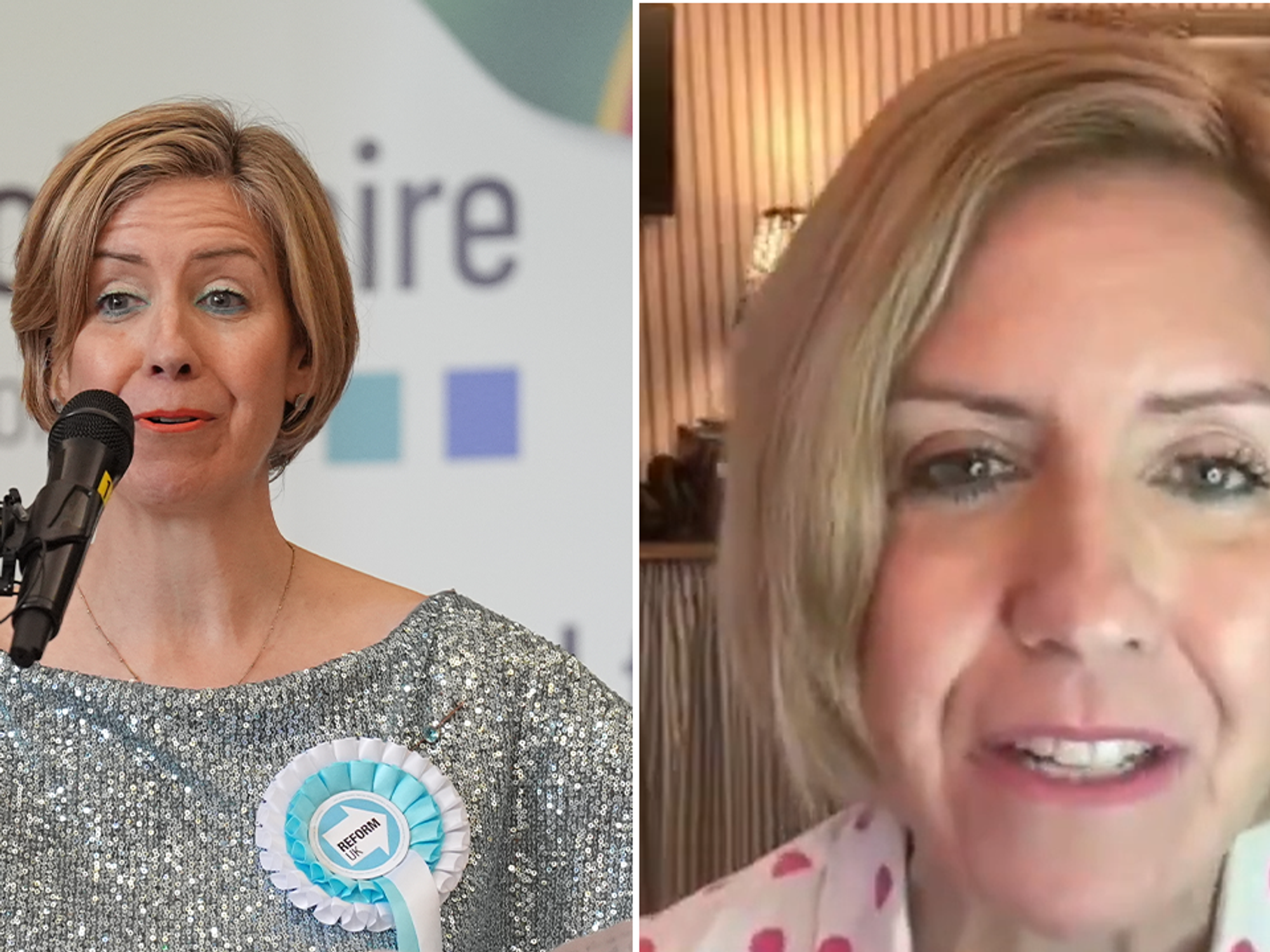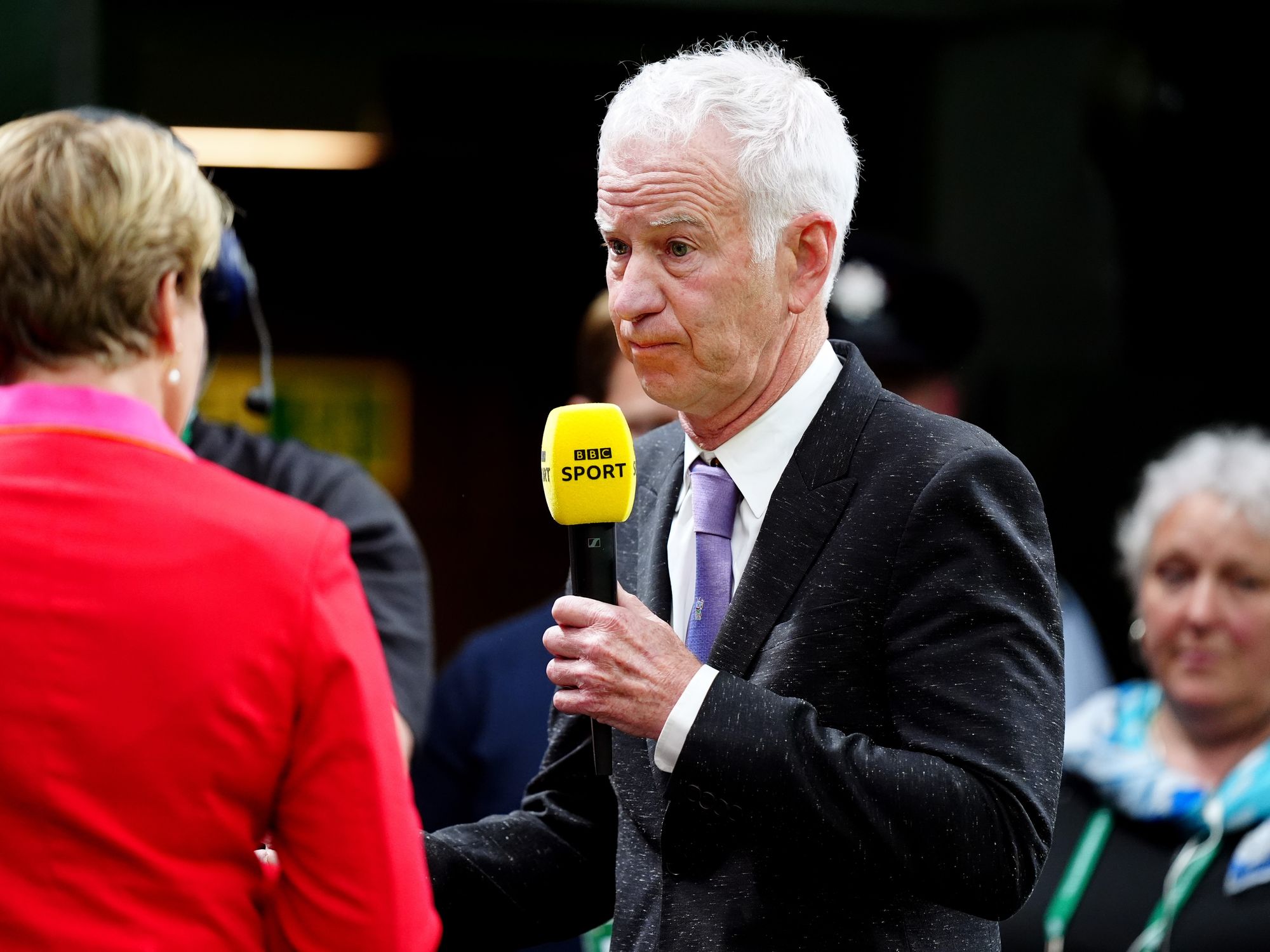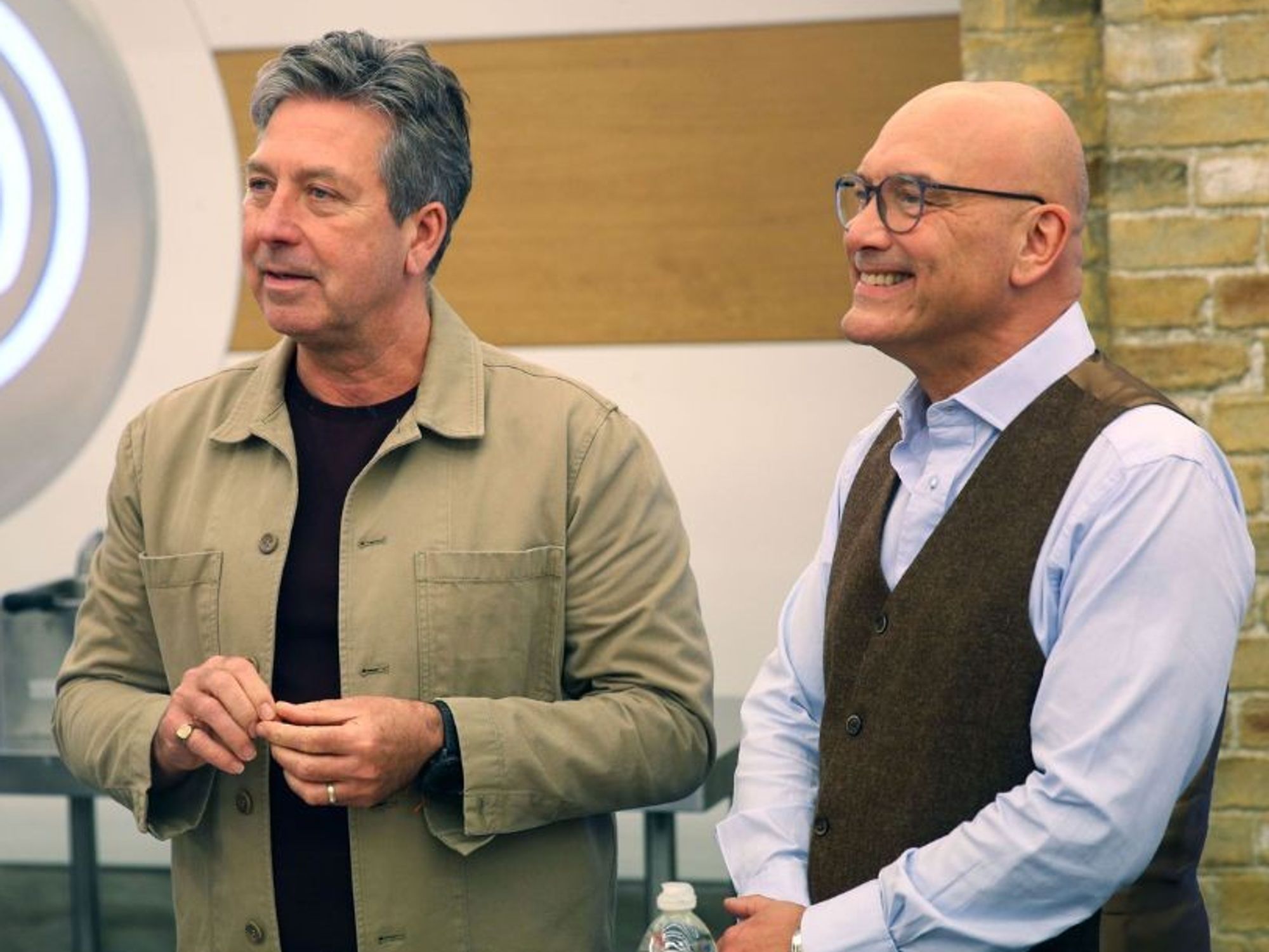
Small traders fear card payment companies will jack up their fees as use of cash reduces
PA
Small traders fear card payment companies will jack up their fees as use of cash reduces
Don't Miss
Most Read
The Federation of Small Businesses has backed calls to save cash - saying it still has a vital role to play.
The organisation is supporting a campaign by GB News - called Don’t Kill Cash - which has seen over 270,000 people sign a petition to save cash as legal tender in the UK.
They've thrown their support behind it because they are worried that as cash recedes, and small traders and the self-employed become increasingly reliant on card payments, then "monopolistic" card companies could up the rates that they charge.
Alan Soady, Federation of Small Businesses said: "Cash is a really important part of the payment mix and lots of small businesses still very much value taking cash - as this GB News campaign highlights.

Alan Soady
"The problems that they face, though, include where to put it. At the end of the day, so many bank branches have closed.
"The scope for the post office may be to have a role to take over that, but in many cases, particularly in rural areas, they have to drive many miles to bank the cash. So that's a barrier.
"The risk if we end up with basically a cashless society on the High Street is that the card companies, the payment companies, will have quite a monopoly.
"They'll be able to raise their fees. Because there'll be no other way of paying and that's another reason why cash is an important alternative to card payments.
"Card companies do charge businesses a fee. It depends on the companies what the fee is for using card transactions.
"And OK, they've got a business to run, they've got a service that they provide.
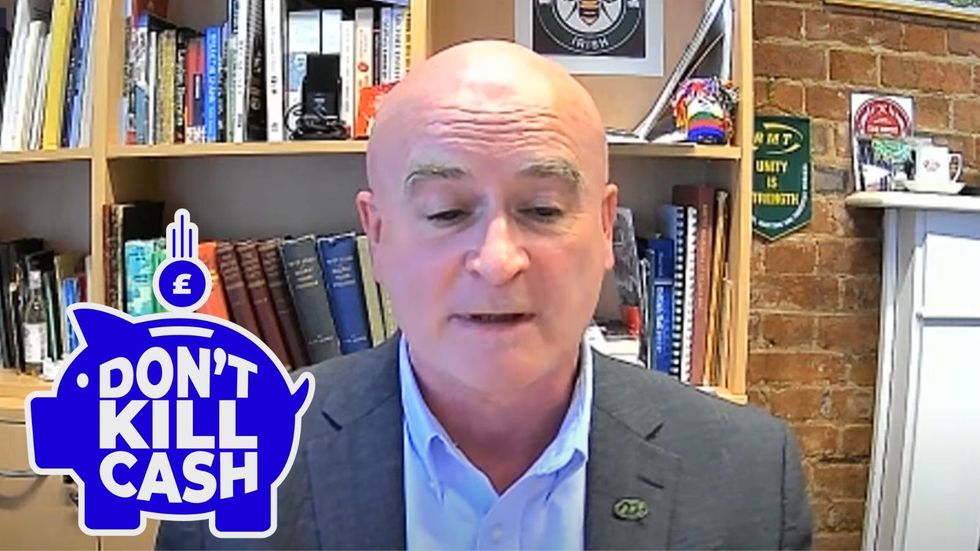 Mick Lynch revealed he backs GB News' Don't Kill Cash campaignGB News
Mick Lynch revealed he backs GB News' Don't Kill Cash campaignGB News"But if the cash doesn't exist, if we end up in this cashless kind of High Street, then that does suggest that they would have much more of a monopoly position on payments than they do now.
"And therefore it wouldn't take a genius to suspect that. They might then use that to put their fees up because a retailer might have no other alternative but to use them to get payments from customers.
"If we ended up with a cashless High Street, then that is a big competitor to the card companies in terms of a payment method gone without that competitor.
"Naturally that gives them more of a monopoly position. And so it's not that much of a stretch of the imagination that they could then put up their fees because for a retailer, they may have no other way of taking payments.
"Cash is a really important part of the payments mix. Yes, cards and other payment methods are important too.
"From a consumer perspective though, we know that, for example, those on lower incomes can find cash more useful in terms of budgeting and keeping control of their finances.
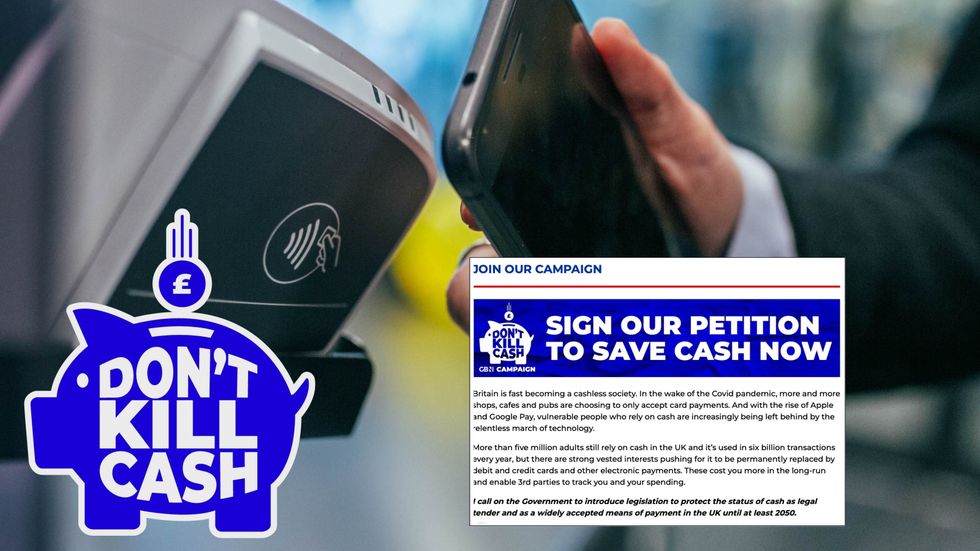
More than 270,000 people back GB News campaign.
GB News/Unsplash"From a business perspective, there are costs involved in taking card transactions and other digital payment methods, whereas that isn't the case with cash.
"And what businesses on the High Street need is actually a way of banking that cash at the end of the day and support to still be able to take cash as one of the payment methods because so many bank branches have closed.
"There's not really a sufficient alternative in place, the scope perhaps for the Post Office to have a role in that. But as things stand, particularly in rural areas, many small business retailers have to travel many miles to bank cash.
"At the end of the day, we need to have an incentive to be able to keep cash as part of the mix, both from a consumer perspective and from the business perspective. We've had a succession of retail sales figures that show
"There is a cost of living crisis affecting consumers, but there is a cost of doing business crisis as well, particularly affecting smaller businesses.
DON'T KILL CASH:
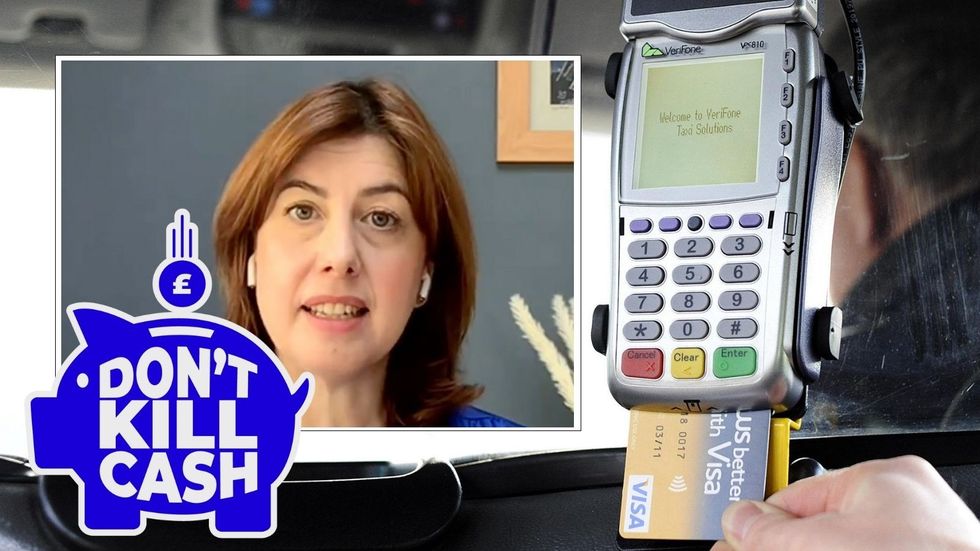 Labour frontbencher backs GB News' Don't Kill Cash campaign as 'important issue to highlight'
Labour frontbencher backs GB News' Don't Kill Cash campaign as 'important issue to highlight'"You don't have the big pockets of big, large global corporates. It's higher interest rates. it's inflation, it's the highest tax burden for 70 years.
"The only way out of that is to ease some of that burden, to have policies in place from government and others that actually allow these businesses to have more of the money that they take to spend. To invest, to grow, to create jobs and ultimately to get back economic recovery
GB News’ Economics and Business Editor Liam Halligan said: “The Federation of Small Businesses also worries that card payment companies could charge firms more as competition from cash disappears, with higher charges being passed on in the form of higher consumer prices.
“So if we ended up with a cashless High Street, then that is a big competitor to the card companies in terms of a payment method gone without that competitor.
“Naturally, that gives them more of a monopoly position.
“And so it's not that much of a stretch of the imagination that they could then put up their fees because for a retailer, they may have no other way of taking payments.”
He added: “Since the COVID pandemic more and more shops, cafes and pubs only accept card payments. Yet, 5 million of us in the UK still rely on cash every day, which accounts for 6 billion transactions a year.
“That's why GB News launched our Don't kill cash campaign.”
The petition says I call on the government says our petition to introduce legislation to protect the status of cash as legal tender, and as a widely accepted means of payment in the UK until at least 2050.
Over the last month the campaign has attracted over 270,000 signatures and GB News is pushing for the issue to be debated in Parliament.
You can help GB News in ensuring the Government and businesses Don't Kill Cash by signing our petition.
Have you found yourself impacted by the cashless society? Email in and let us know your stories gbviews@gbnews.com


